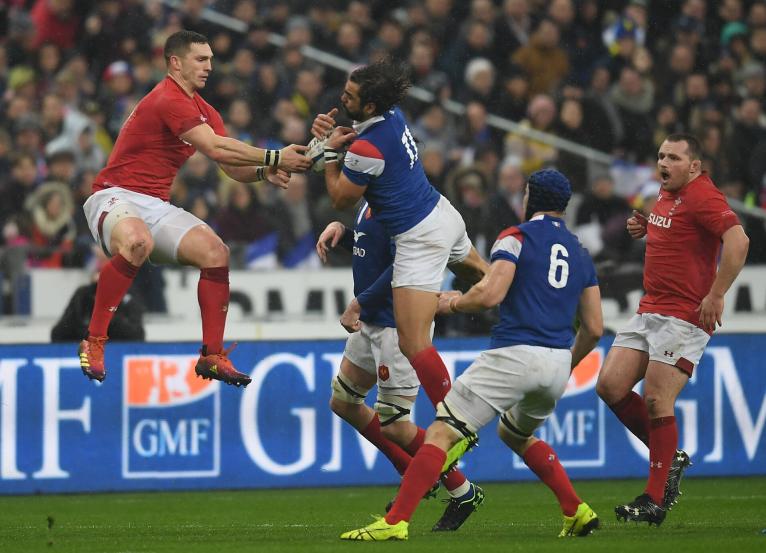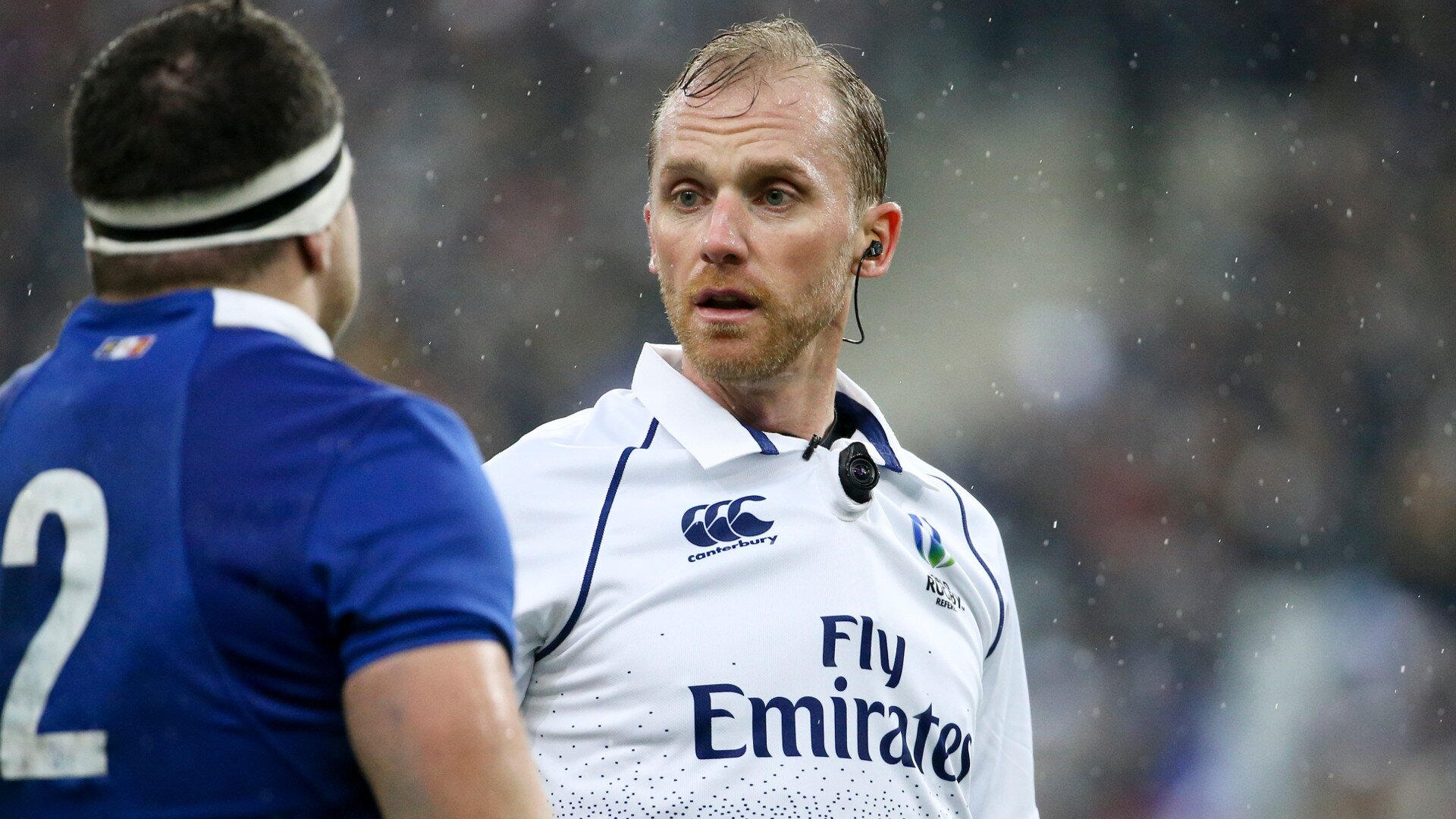With Japan 2019 looming into view, the Six Nations offers a last opportunity for players to press their case for selection.
This is also the case for the match officials, a number of whom retain realistic ambitions of following in the footsteps of Kerry Fitzgerald, Derek Bevan, Ed Morrison, Andre Watson, Alain Rolland, Craig Joubert and Nigel Owens in taking charge of a World Cup final.
For World Rugby’s five-strong match official selection committee, including manager Joel Jutge, performances in the Northern Hemisphere’s elite competition will therefore be under close scrutiny.
And with each of this year’s 15 matches being under the control of a different referee, the contenders have only one chance to impress.
Former Birmingham Mail and Coventry Telegraph rugby correspondent Paul Smith took charge of the whistle at more than 800 matches – here is his assessment of the first weekend’s officials.
Continue reading below…
France 19-24 Wales – referee: Wayne Barnes (England)
Management and Communication
The most experienced referee in world rugby, for whom Japan 2019 will be a fitting finale to an outstanding career, Barnes exudes confidence and calmness.
But like any referee, his ability to communicate to equal effect with both teams is language dependent – and his French is very limited.
Barnes deserves credit for making an effort – the ref mic picked up “attend pour le balloon” plus “advantage – en avant,” “lentement” and “melee rouge”.
But in this preventative refereeing age, while he was able to hold more detailed conversations with the Welsh players, the fact that not all of the French 23 speak fluent English put them at an immediate disadvantage.
For instance, “we need tempo in the game” was directed at les Bleus shortly before the interval, while the front rows heard – but possibly didn’t totally understand – “let’s get this working on this side please, good heights from both of you”.
Should Jacques Brunel’s team make the knock-out stages in Japan it is essential for the competition’s credibility that they encounter a bi-lingual referee – the supply of which is far from plentiful outside of France – to ensure the contest takes place on a level playing field.
In-Match Refereeing Trends
The match swung in Wales’ favour from the half-hour mark onwards, and as a consequence they retrieved a 16-point deficit.
From a refereeing perspective, the scrum was the key factor in this, with the hosts conceding three penalties and two free-kicks while the visitors infringed only once. This gave Wales both possession and territory.

Barnes will have been aware pre-match of the huge pack selected by France, which along with the emphasis they put on scrummaging will have sharpened his focus on this area.
Key Moments
Crowd noise following a big screen replay drew Barnes’ attention to Liam Williams’ non-grounding of the ball for a try which he had awarded at the end of the opening quarter.
TMO! FRA 5-0 WAL – Liam Williams shows just what a threat he can be, but Wayne Barnes is having a look upstairs… [17 mins]
— Guinness Men's Six Nations (@SixNationsRugby) February 1, 2019
The TMO may have been in the process of reviewing the situation – but either way the English official’s experience showed, as he immediately positioned himself in front of the ball to prevent a conversion attempt while the grounding was examined.
Barnes later ruled out another Welsh score when Ross Moriarty went through a gap which he identified as being illegally created by Alun Wyn Jones’ block – this was done without a lengthy TMO delay.

Barnes also enjoyed the rare distinction of drawing praise from the TV pundits, when his patient wait for an unlikely Welsh advantage to come to fruition ended with Yoann Huget fumbling a kick for George North’s second try.
Huget’s own earlier score also resulted from Barnes’ use of a long advantage following a Wales lineout knock-on, despite two subsequent phases of slow possession resulting.
World Cup?
Barnes is a certainty to make the selection cut, and a strong contender for the knock-out phases. Should things go well from there – and England not be involved – his case for a final appointment may well be persuasive, but will the language barrier be considered a problem?









































































































